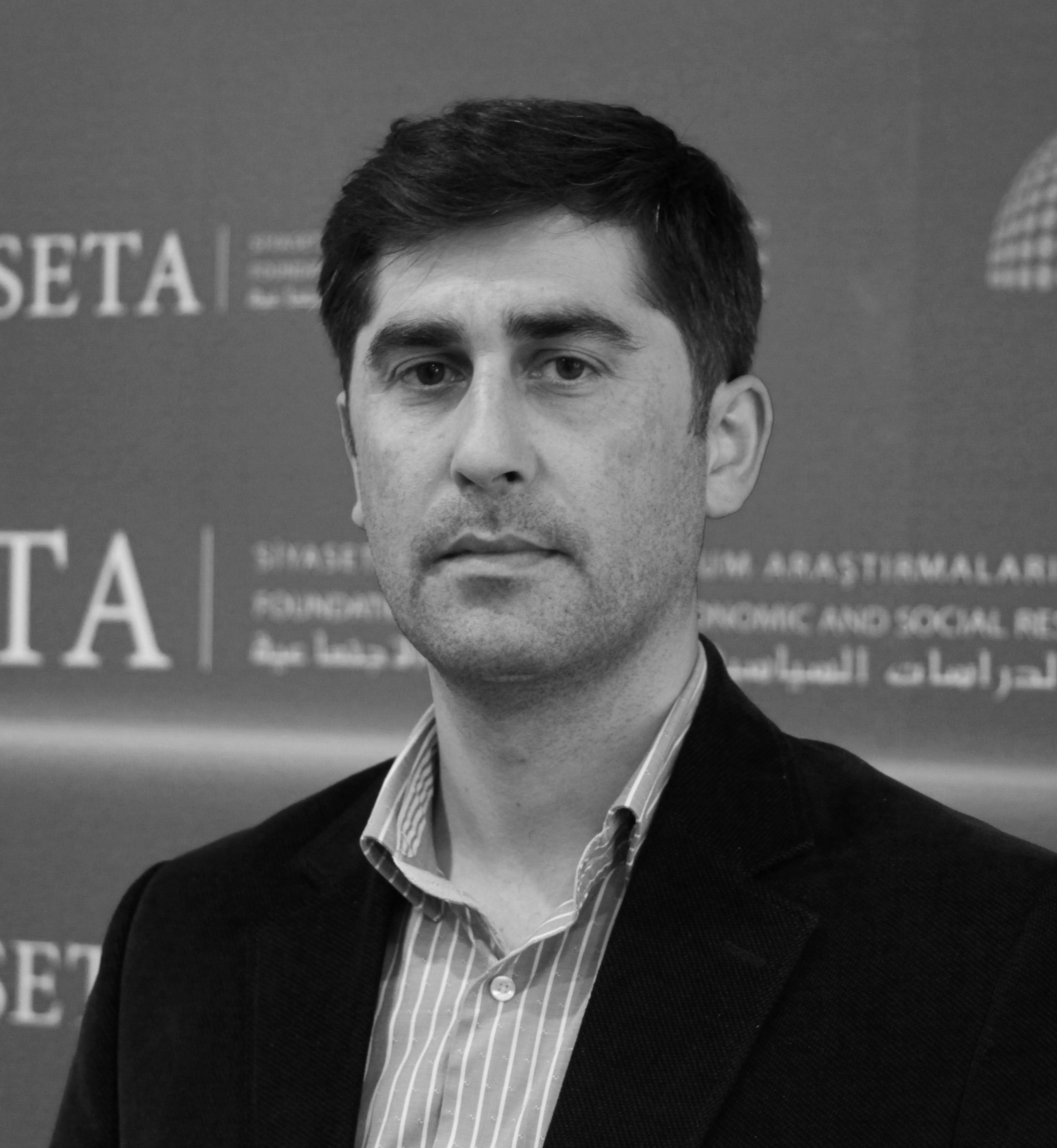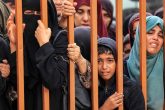Since Oct. 7, Israel’s attacks on Gaza have resulted in significant consequences in terms of military, political and geopolitical dynamics, along with flagrant violations of international law. While the United States and Western countries have framed Israel’s actions within the context of the right to self-defense, the current situation transcends this justification, allowing for the categorization of Israel as a state committing war crimes in Gaza.
While international law experts continue to debate this issue, the report published by Yücer Acer unequivocally supports this interpretation. According to the report, Israel not only operates in violation of international law but also perpetrates severe war crimes and genocide against Gazans.
One crucial observation at this juncture is that Israel’s purported right of self-defense is fundamentally flawed. As a state that has occupied Palestinian territories, Israel lacks the right of self-defense against the military attacks of the Palestinian groups in those occupied regions. Instead, Israel’s legal obligation should focus on withdrawal from the occupied territories back to its legitimate borders. Thus, Israel could only legitimately invoke the right of self-defense when attacked within its recognized borders to protect its own territory.
Acer argues that the right to self-defense is applicable in response to illegitimate use of force. Palestine, as the occupied party, holds the right to exercise self-defense at any time. This stance was explicitly articulated by the International Court of Justice in its advisory opinion on Israel’s construction of a wall in Palestinian territories.
Setting aside Israel’s status as the occupying party, even if one were to assume that Israel exercised its right to self-defense, the disproportionate use of force by Israel and its targeting of individuals and locations led its counterattacks to surpass the legal limits of the right to self-defense, evolving into an indiscriminate assault devoid of legal justification.
Upon examining the aftermath of Israel’s attacks, it becomes evident that the issue transcends the mere claim of self-defense. The widespread bombardment of settlements, particularly in the northern Gaza Strip, has resulted in numerous civilian casualties and injuries, as well as the destruction of vital civilian infrastructure. Concurrently, the Israeli army initiated a complete lockdown in the West Bank. Israeli Defense Minister Yoav Gallant announced the imposition of a “total” blockade on the Gaza Strip, cutting off electricity and preventing the entry of essential supplies, coupled with an alarming declaration: “We are fighting human animals and we act accordingly.” Hence, Israel’s attacks cannot be construed within the realm of self-defense.
According to Acer, the right to self-defense does not serve as a blanket justification for military activities of any kind or scale. As stipulated in Article 51 of the U.N. Charter, the right to self-defense refers to states’ entitlement to defend themselves against an ongoing armed attack, either individually, in collaboration with other states, or with aid from other supporting states. Actions that exceed the proportionality of the initial force justifying self-defense and aim at punitive measures or vengeance surpass the legal boundaries of self-defense.
In this context, Israel could only continue its counter-military actions until the cessation of the attack and the liberation of its occupied territories, if applicable. The force utilized must remain proportionate, limited to stopping the attack and securing the liberation of the legitimate parts of its country.
Violations of international humanitarian law
Acer contends that Israel’s ongoing attacks on Gaza showcase distinct features that highlight violations of international humanitarian law. These military assaults and measures don’t solely target the Gaza Strip, but extend to other parts of Palestinian territory, namely the occupied West Bank and Jerusalem. The most alarming aspect is the deliberate targeting and harming of civilians. Aerial bombardments by Israeli warplanes, artillery or rocket fire by ground forces and similar attacks directly aim at known civilian sites, resulting in civilian casualties or injuries. Bombing evacuation routes, civilian shelters, refugee camps, towns or villages intentionally causing harm to civilians occurs almost daily.
Israel’s targeting of civilians isn’t limited to Gaza but extends to the West Bank. This conduct suggests that Israel has overstepped the boundaries of self-defense. These actions encompass shooting and killing civilians during demonstrations, injuring and detaining them, overlooking Palestinian killings by Jewish settlers and even conducting airstrikes on the West Bank city of Jenin. As of Nov. 15, Israel has claimed the lives of over 200 individuals in the West Bank.
Acer highlights Israel’s notable action against Palestinians in Gaza, namely the forced displacement of Palestinians from their homes. On Oct. 12, Israel mandated that all residents in northern Gaza relocate to the south within 24 hours. In response, United Nations officials deemed this mandate impossible and inhumane, anticipating severe consequences. Amnesty International also warned of a humanitarian catastrophe, urging Israel to revoke the evacuation order on Oct. 13.
The deliberate targeting of civilians, individuals protected from the impacts of war, occurs not only through direct attacks but also through assaults on civilian infrastructure, rendering basic necessities unattainable. Israel’s actions include the announcement on Oct. 12 that water, fuel and electricity to Gaza would cease until hostages were released. Subsequently, power plants, solar panels, water and fuel lines essential for civilians have been and continue to be bombed.
Acer underlines another critical aspect of Israel’s attacks in humanitarian terms: assaults on hospitals and health care institutions. On Oct. 14, Red Crescent ambulances were deliberately struck; on Oct. 17, Al-Ahli Arab Hospital, sheltering thousands of Palestinians, was bombed; on Oct. 27, Israeli warplanes targeted both Al-Shifa Hospital and the vicinity of Indonesia Hospital in Gaza; on Oct. 30, the Turkish-Palestinian Friendship Hospital was bombed; and on Nov. 3, an ambulance convoy was attacked, with Al-Shifa Hospital being bombed once again. Schools, places of worship, U.N. agencies like the United Nations Relief and Works Agency for Palestine Refugees in the Near East (UNRWA) and aid convoys have also been targeted. Notably, numerous members of the press have lost their lives in Israeli attacks, with the death toll of journalists reaching 48 people.
Ethnic cleansing
Acer’s primary argument underscores that Israel’s actions in Gaza align with the definition of “ethnic cleansing.” Ethnic cleansing involves the deliberate displacement or mass murder of civilian populations to establish an ethnically homogeneous territory. Francesca Albanese, the U.N. special rapporteur on the human rights situation in the Palestinian territories occupied since 1967, explicitly mentioned that, “Israel has already conducted mass ethnic cleansing against Palestinians under the guise of war.” She further emphasized that, “Israel is once again attempting to justify ethnic cleansing under the pretext of self-defense.”
This assertion by Acer and the U.N. special rapporteur raises a profound concern regarding Israel’s actions in Gaza, implying that the operations carried out there exhibit characteristics akin to ethnic cleansing. This designation implies deliberate efforts to alter the demographics of an area by forcibly displacing civilians, a grave violation of human rights and international law.
In conclusion, Israel’s attacks on Gaza have unequivocally transcended the bounds of a legitimate military operation, with the Tel Aviv administration egregiously flouting all norms of international law. Even in the event of Israel’s military success, the eventual prosecution of those accountable for these actions remains inevitable.



